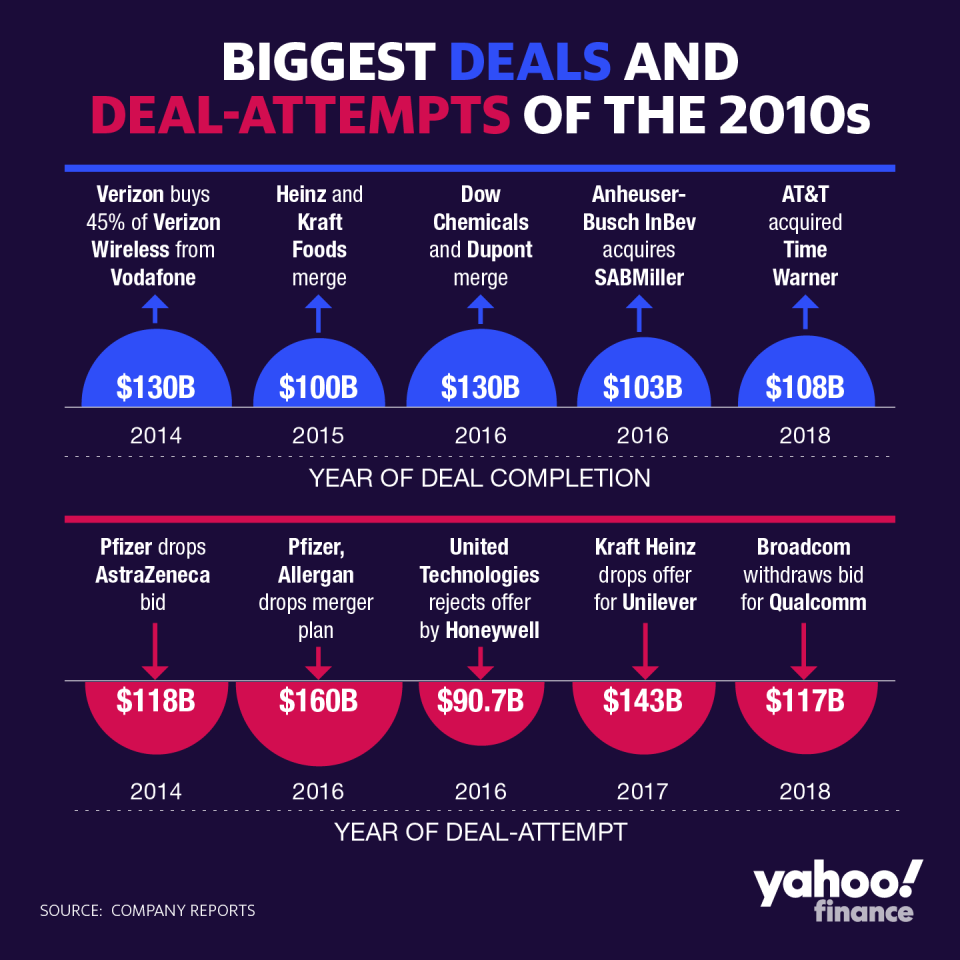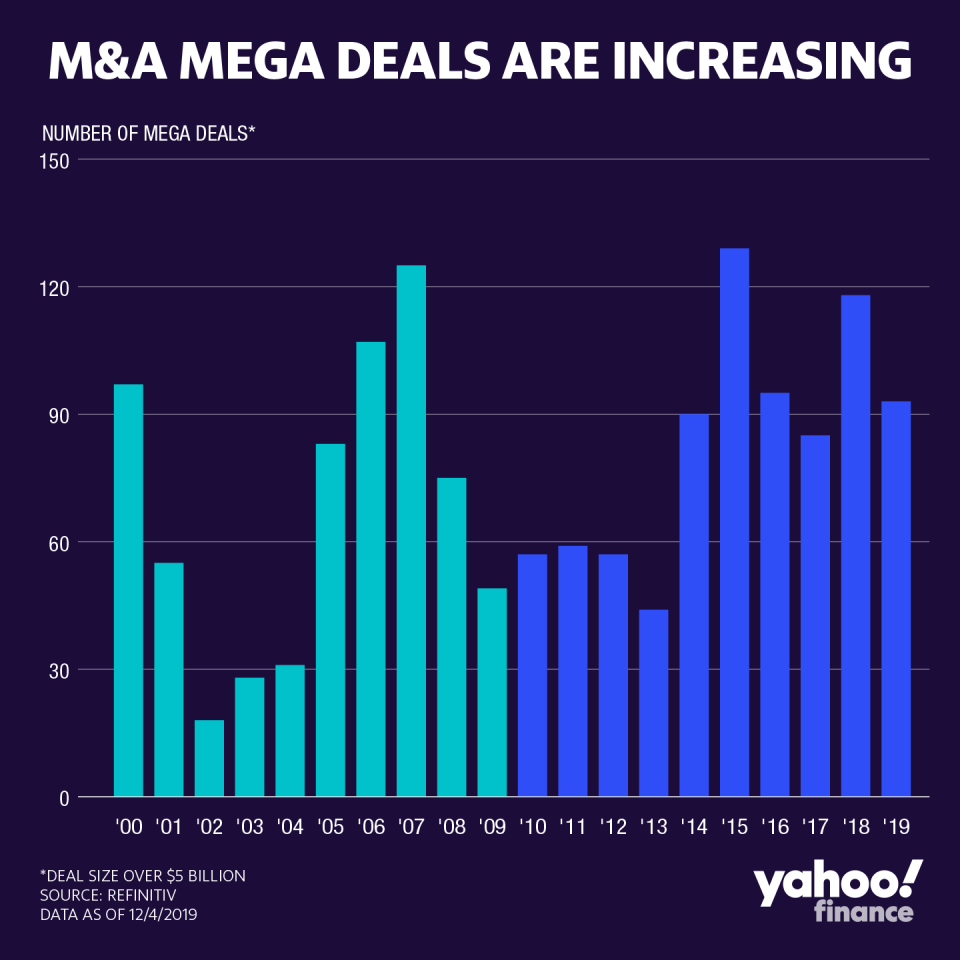The biggest deals and attempted deals of the 2010s
This was a year of mega deals. Think Raytheon Company and United Technologies’ $135 billion merger; AbbVie’s takeover of Allergan; and Bristol-Myers Squibb’s $74 billion acquisition of Celgene.
So as the decade ends, Yahoo Finance takes a look at merger and acquisition activity. Each year in this decade there was an average of 83 mega deals, with over $5 billion in deal size. While the average number of such deals in the last decade was 67. Not only are there more deals, the deals are also larger in value. The mega deals in 2007, a year when M&A activity spiked, were about $11 billion on average. This year, the average value of a mega deal is about $22 billion.

“Companies are continuing to get larger. There are fewer of them though,” said Curt Moldenhauer, U.S. deals solutions leader at PWC. “U.S. companies themselves generating a ton of profits for the last decade, and more companies are using the money on their own balance sheet to finance deals.”
Mega deals used to be funded primarily by bank borrowing and company stock, but in this decade, bonds, leveraged loans and cash are taking a bigger role in M&A deals. IBM bought Red Hat last year in a $34 billion deal that was wholly funded by cash.
[See also: The stock market's biggest winners and losers of the past decade]
And the mega-deal trend in M&A could be recession-proof, according to Moldenhauer. Corporate America has over $2.2 trillion in cash sitting on their balance sheets — the highest in decades. Leveraged buyouts and bonds as sources of fundings are less impacted by the recession, compared to banks and stocks.
“Even if potentially there’s an economic downturn, we believe that the M&A market will continue to be relatively strong,” said Moldenhauer. “Because there is so much capital available.”

This was also a decade of vertical mergers. Before mega deals tended to be horizontal ones, meaning businesses that operate in the same industry consolidate. AT&T buying Times Warner for $108 billion is a clear sign of telecom companies getting into the content world in an effort to diversify their revenue stream.
Regulation and national security concerns also continue to block some major M&A deals. Multinationals need to gain approval from various regulatory bodies in the markets they operate in. In the U.S., the CFIUS’ newly passed FIRRMA created hiccups for foreign investment, as it tightened scrutiny in certain industries like high tech. As a result, Chinese M&A investment in the U.S. has plunged.
[See also: 5 failures of the 2010s]
While companies always pay close attention to antitrust regulations in the U.S. and EU, China has increasingly exerted its power in regulating global companies' M&A deals in recent years. Beijing blocked Qualcomm's attempt to buy the Dutch chipmaker NXP Semiconductors in 2018.
Here are the biggest deals and attempted deals, based on dollar value, in this decade.
Biggest deals:
Verizon buys Verizon Wireless from Vodafone in a $130 billion deal, in cash and stock (completed in 2014)
Dow Chemical and Dupont merge in a $130 billion transaction (completed in 2016)
Anheuser-Busch InBev acquires SABMiller in a $103 billion all-cash acquisition (completed in 2016)
Heinz and Kraft merge in a $100 billion deal (completed in 2015)
AT&T buys Time Warner in a $108 billion stock-and-cash acquisition (completed in 2018)
Biggest attempted deals:
Pfizer, Allergan terminated $160 billion deal after the U.S. changed rules on tax evasion (2016)
Kraft Heinz dropped its $143 billion offer for rival Unilever (2017)
Pfizer abandoned its attempt to buy AstraZeneca for £70 billion ($118 billion) (2014)
Broadcom withdrew its $117 billion bid to acquire Qualcomm after President Trump blocked the deal over national security concerns (2018)
United Technologies rejected a $90.7 billion offer by rival Honeywell (2016)
Krystal Hu covers tech and China for Yahoo Finance. Follow her on Twitter.
Read more:

 Yahoo Finance
Yahoo Finance 

